On the Oregon Trail: a Critical Look at the AWT Pistol River
by Graham
At the start of June, I left warm-but-flat Maui for the cold waves of Pistol River, Oregon and the AWT competition there. Everyone bitches about the cold water, but the thick wetsuit rubber bothers me more than the cold water (the water is just an incentive not to fall!), so I prefer a thinner wetsuit with more movability. And after my winter trip to Japan where I was sailing without boots or gloves in the snow (yes, snow!), I think most of the nerves in my feet are dead and therefore aren’t annoyed when the water is less than tropical. Anyway, I had a 3/2 that worked perfectly well for the water, and I was loving it the couple days before the contest when we had solid logo-high waves and decent 4.2 wind. During those days, I was on my game with some sick in-the-pocket takas, backside 3s, and even a few of the elusive frontside 3’s in the onshore mush. The actual event was interesting but less full of fun moves, and made me think critically about the future of competitive windsurfing. Here is an insight and overview:
The conditions during the actual contest were a different story. For most of the event, the waves were less than chest high and the wind was between 4.5 and 5.0. This was fine though. I blew it in the single elimination by taking too small of a sail in my second heat (over optimistic about the wind!). Losing early always sucks, but it fired me up for the double elimination.
When the double started, I made sure not to make the same mistake– I was sure to be at least over-powered for my heats. This strategy paid off and I was able to pull multiple takas in each heat along with some slashy turns and pushloops (my contest jump of choice on starboard tack). There was a surprisingly high level of competition, and there were no easy heats. I fought back through what seemed like 10 rounds (though it was probably fewer). The heats blur together until the quarter final.
The quarter final marked a change in the conditions; the wind started to get light, really light. I was on my 5.0 and bigger board (a custom quatro fish around 85 liters). The heat consisted of Kevin Pritchard, Josh Stone, Tyson Poor, and me. With such dismal conditions, I thought that head judge Matt Pritchard was going to cancel for the day with plans to resume two days later (the final day in the contest window) when the forecast was looking to be excellent. But no, the show went on. On the water, I struggled even to plane. I managed to pump into a decent pushloop and a forward (I thought they were counting 2 jumps but it was only 1). For my waves, I caught some of the sets and managed to carve some turns and bust a taka (my secret contest weapon it seems). I was focusing on myself and therefore didn’t have a chance to really watch the other guys on the water. I know that Kevin had some pretty decent jumps and good waves and I think Tyson struggled a bit in the super light wind (I still think the heat should have been postponed). In the end, even though I didn’t think I would get through, Josh Stone and I passed into the next round.
The next heat was a three man heat (Josh Stone, Boujmaa Guilloul, and I) where only one of us was going to advance to fight against Nathan Mershon in the double elimination final. I thought that the conditions in the previous heat were bad, but these conditions were even worse. I was a bit bummed out that I weighed 40lbs more than either of the other two competitors as the wind began to sink below sailable and the sun sank too– the light dwindling into dusk. I voiced to the judges that I thought we should wait till the good conditions coming in two days (after all, we already had a result from the single elimination, so there was not such a risk if the conditions never materialized [plus, anything would have been better than the crap that was there]). Yet, we sailed.
I borrowed Kevin Pritchard’s 5.8 and went out on my quatro quad. Honestly, it sucked. I pumped into a forward and had one good wave, but then became flustered and frustrated with the conditions and couldn’t find another good wave. At this point, the heat was about competing, not about windsurfing. The actual level of the windsurfing was secondary to the competition, so the contest could have been about anything. I ended up 4th in the event, which is better than last, but I would have liked a better conditions to stage my performance.
This is bad, I think. The problem with windsurfing comps in the past is that they have focused on competing rather than windsurfing. I pumped up the AWT in Windsurfing Mag for having a tour that focused on good conditions even if the prize money was not present. That was not the case here. Take the worst Euro contest, make it starboard tack, take away the prize money, and that’s what we had for the last 4 heats of the AWT Pistol River. As a true windsurfingphile, I was a bit disappointed. I have no intentions to retract what I previously praised about the AWT, but as a new and growing tour, it will be nice to see the AWT learn how to spotlight the sport properly (read: good conditions equals good/progressive performance) while having a meaningful competition that can excite windsurfers around the world. For the sport to grow, windsurfers need to innovate, and for that to happen, we need good conditions.
On a meaningful side note, the ASP (the surfing world tour) is going through a problem similar to the one that windsurfing went through in the late nineties till now. The sponsors are pushing events (Rio, NYC, etc) in locations for the money and spectacle rather than the actual surfing– recipe for a decadent disaster. Surfline has a good article on it here. If surfing can learn anything from windsurfing, they will steer away from this current trend and push back to the classic spots of old (read Fiji, Tahiti, etc).
At the end of the day, for our sport to grow, we need to focus our energy on the sport itself and not any of the peripheral BS. Windsurfing is one of (if not THE) most radical sport on the water (and land?). We don’t have to package it for it to be sold. The equation is simple: good conditions + good riders= good competitions. The AWT is a start and I’m excited to see where it goes.
And here are some pics from the event:
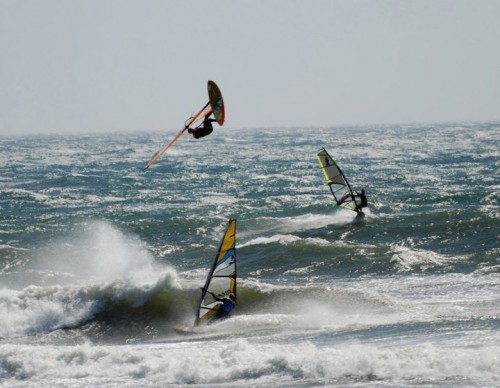
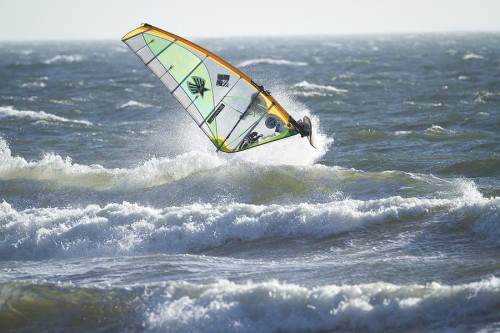
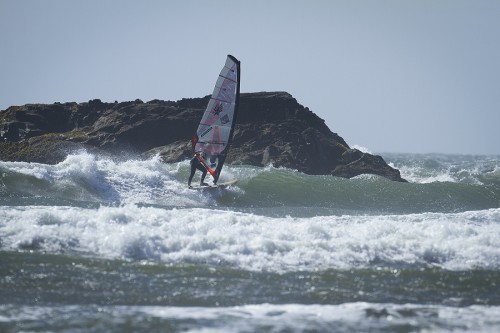
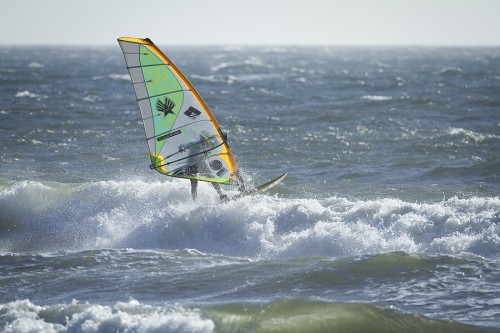
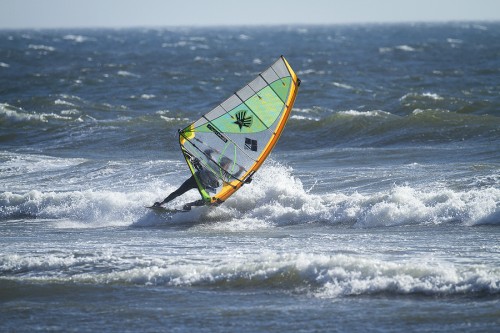
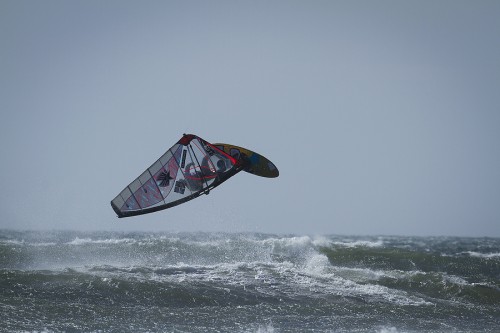
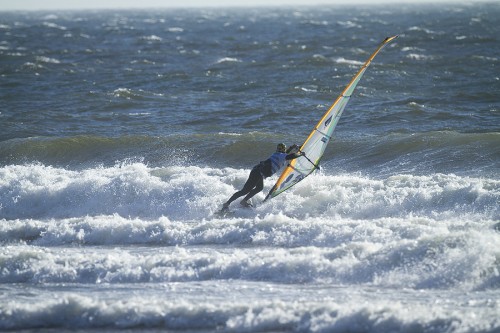
Thanks for the interesting read Graham. I was a little surprised that the movies showed relatively small waves, but now I see it was part misfortune, part choice. I wonder why the judges did not postphone, which would’ve made more sense. I do agree with you, sport first. That radiant enthousiasm will bring interesting windsurfing, all else follows. The Surfline link was quite shocking, I must say. I suppose you don’t follow the Tour de France like we do in europe, but the same thing came up when a car knocked rider Hoogeland from the road into a fence. In the newspapers discussion flared up over the commercialisation of de tour de France. In the end the sponsor was too mighty, and had bad priorities. I love to watch windsurfing clips online, and read as inspiration for my own sport. Let’s hope that at the next AWT location, the judges are prudent. Good luck! Lucas